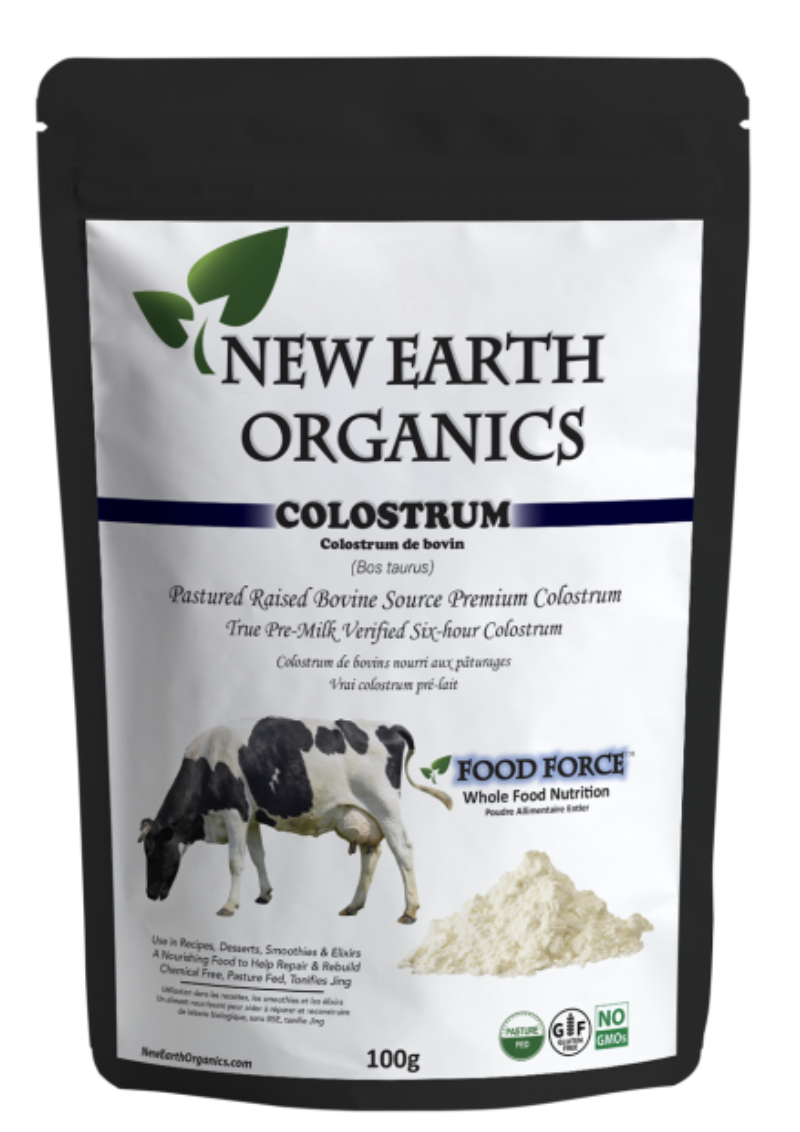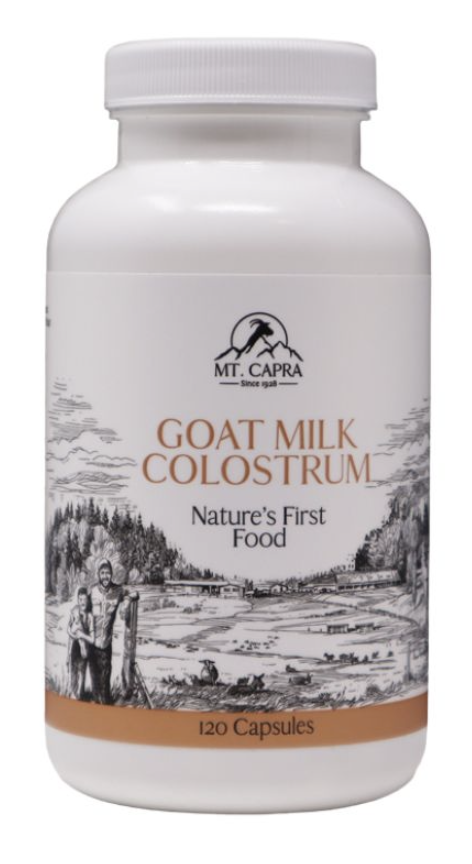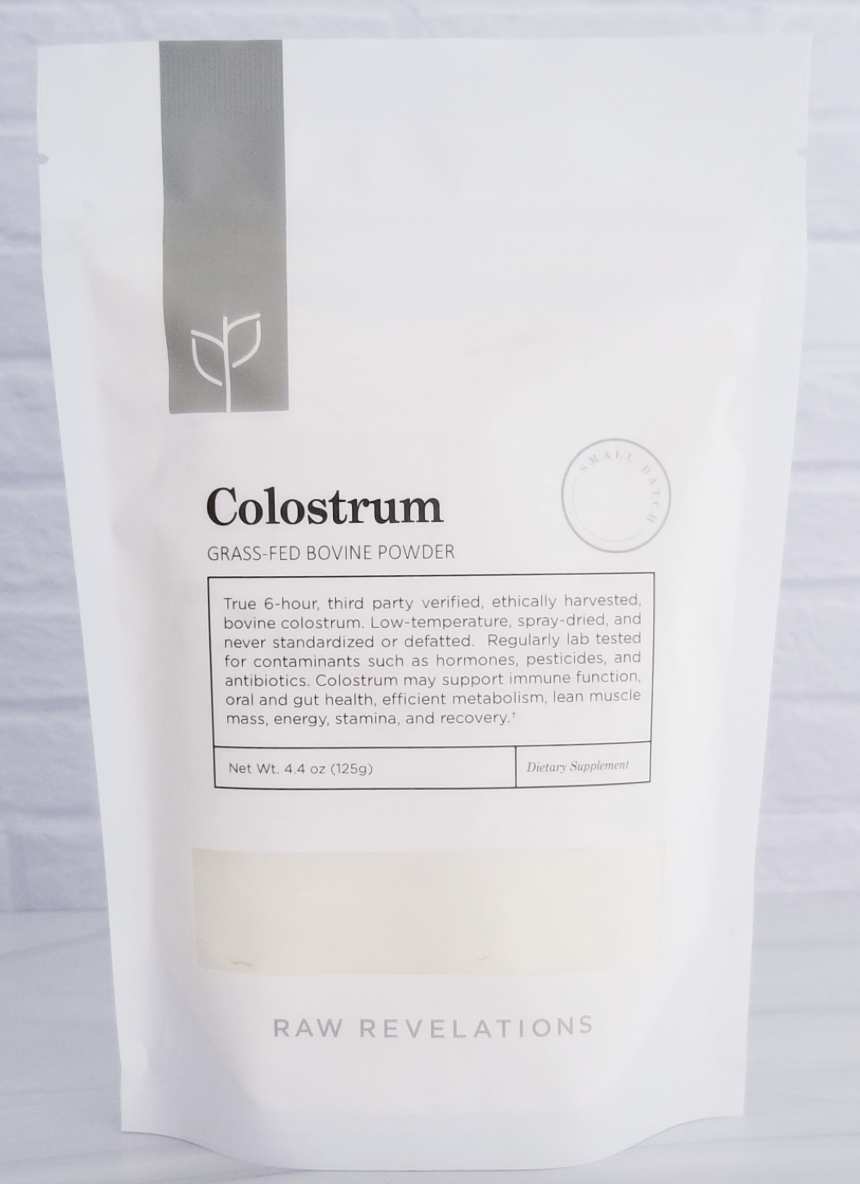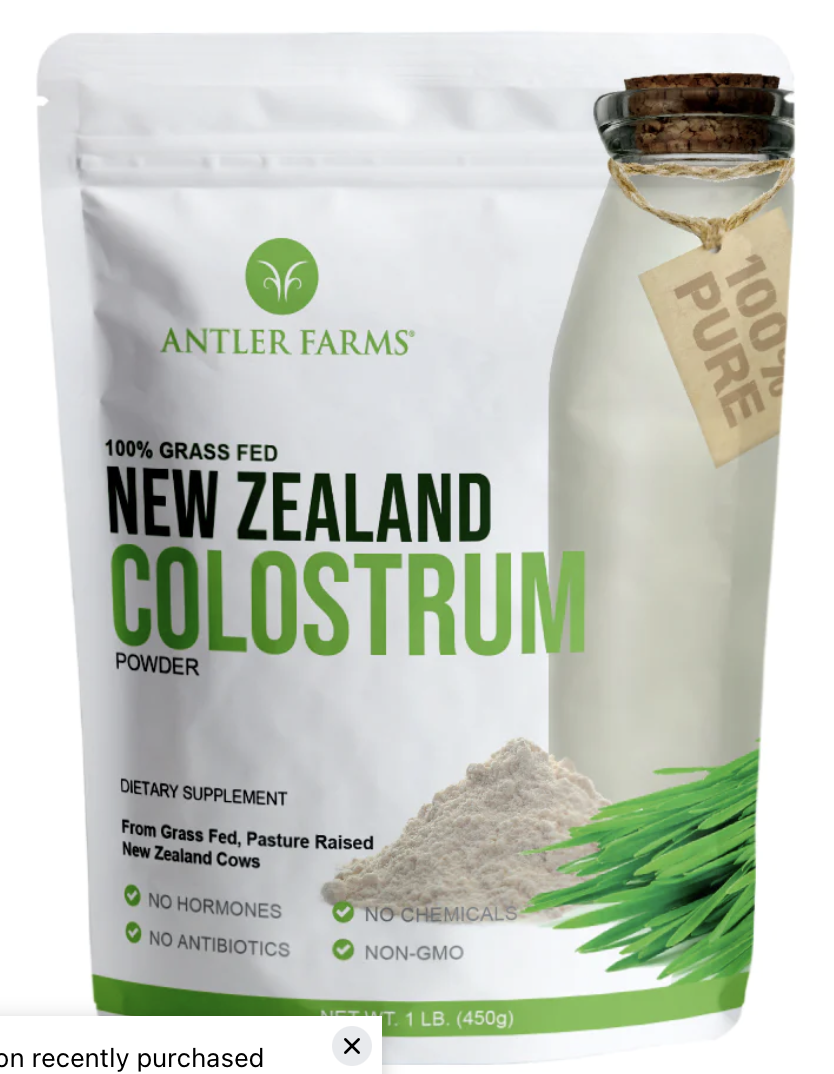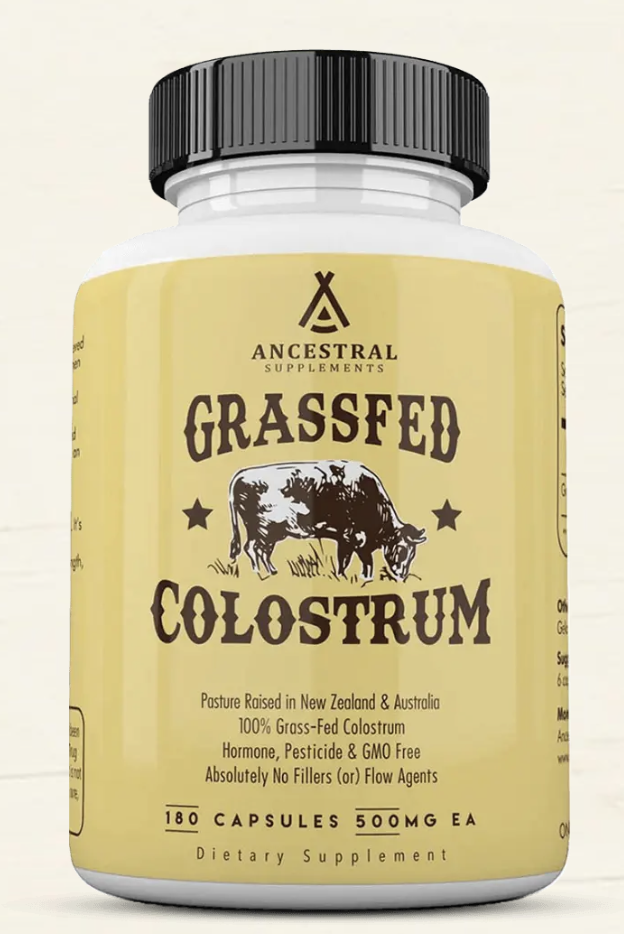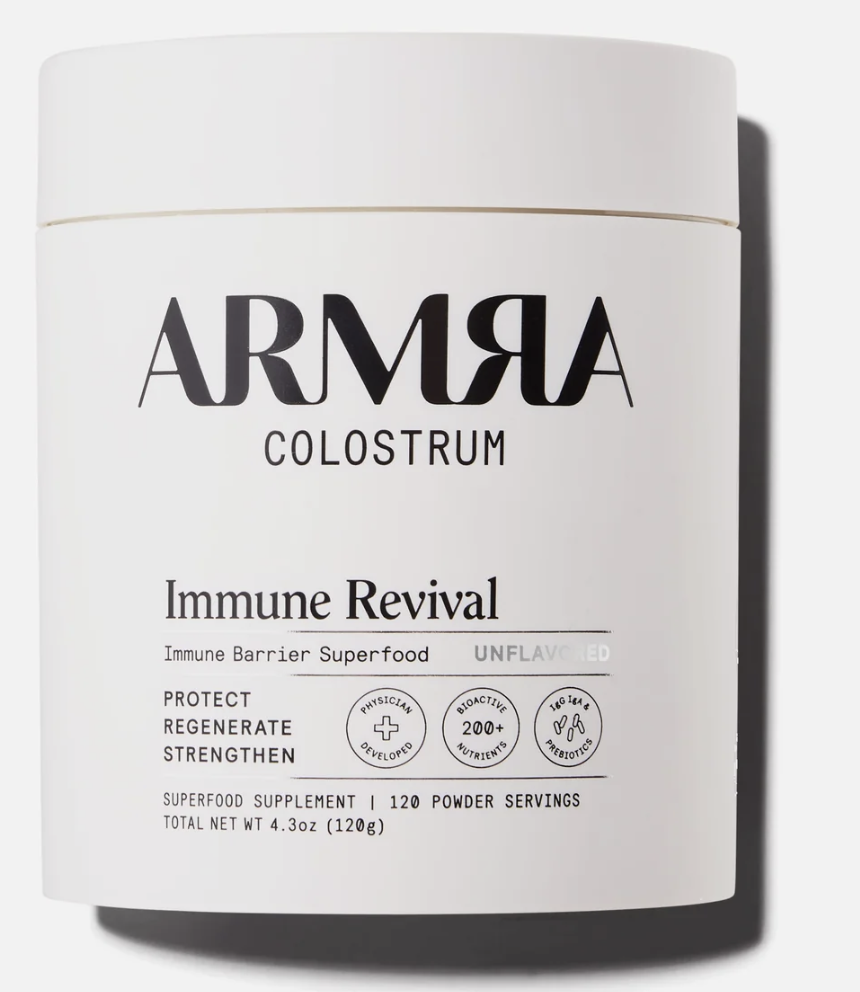Is Colostrum Liquid Gold?
Move over, kale smoothies and avocado toast, there's a new superfood in town and it's udderly ridiculous. I'm talking about colostrum - the nutrient-rich milk that all mammals- including humans produce for their newborn babies. Apparently, people have decided that drinking the colostrum of cows is the key to optimal health and it’s taking over wellness circles from Hollywood to New York.
So what is it exactly?
Colostrum is the nutrient-rich, first milk produced by mammals in the early stages of lactation, typically within the first few days after giving birth. It's different from regular milk in that it's lower in fat and higher in protein and immune-boosting compounds. Colostrum is crucial for newborn mammals as it provides essential nutrients and helps to establish a healthy immune system.
Colostrum is produced in smaller quantities than mature breast milk, typically only a few ounces per day during the first few days after birth. However, colostrum is much richer in nutrients and antibodies, and provides the newborn with important immune factors that help protect against infections and diseases.
There are several reasons why colostrum has become a trendy new supplement in recent years.
First, as mentioned earlier, colostrum is rich in nutrients and immune factors that can support overall health and well-being. This includes proteins, antibodies, growth factors, and cytokines. that have been shown to have various health benefits, including improved immune function, tissue repair, and muscle growth.
Second, colostrum is a natural product that is derived from mammals, which is appealing to many people who prefer natural supplements over synthetic ones.
Third, there is growing interest in the potential benefits of colostrum for athletes and fitness enthusiasts. Studies have suggested that colostrum supplementation may improve exercise performance, reduce muscle damage and soreness, and increase muscle mass.
Finally, the availability of colostrum supplements in various forms, such as capsules, powders, and liquids, has made it easier for individuals to incorporate it into their daily routines.
Bovine colostrum supplements are derived from the colostrum of cows- duh! Typically, these supplements are made by collecting the colostrum from dairy cows within the first few hours after giving birth.
The process of collecting bovine colostrum for supplements is similar to the process used for human colostrum. However, because cows produce a larger volume of colostrum than humans, the collection process may involve milking the cow multiple times within the first 24 hours after calving to obtain enough colostrum for supplement production.
Once the colostrum has been collected, it is processed to create a supplement that is safe and effective for human consumption. The processing method used can vary depending on the specific product and manufacturer, but typically involves pasteurization to ensure that the colostrum is free from harmful bacteria and other contaminants.
After pasteurization, the colostrum may be freeze-dried to create a powder that can be used in capsules or mixed with liquids. Some supplements may also be made using a liquid form of colostrum that has been concentrated and purified.
One key difference between human and bovine colostrum is their composition. Human colostrum contains higher levels of certain immunoglobulins, such as IgA, which are important for immune function in the gut. Bovine colostrum, on the other hand, has higher levels of growth factors, such as insulin-like growth factor (IGF-1), which have been linked to improved muscle growth and repair.
While collagen and colostrum share some similarities in terms of their benefits for the body, they are not the same thing. Collagen is a protein that makes up the connective tissues in the body, including the skin, bones, and muscles. It helps to keep these tissues strong and flexible. On the other hand, colostrum is a fluid that provides a range of nutrients and immune factors to newborn mammals.
So, while both collagen and colostrum are proteins with potential health benefits, they have different roles and properties in the body
Bovine colostrum supplements have been linked to a variety of potential health benefits. Here are some of the most commonly cited benefits:
Immune system support: Bovine colostrum is rich in immunoglobulins, which are antibodies that help to support the immune system. Studies have suggested that colostrum supplements may help to reduce the risk of infections, including upper respiratory tract infections, in individuals with weakened immune systems.
Digestive health: The immunoglobulins in bovine colostrum may also help to support digestive health by binding to harmful bacteria in the gut and preventing them from causing damage. Colostrum supplements have been shown to help reduce symptoms of digestive disorders such as leaky gut syndrome and irritable bowel syndrome.
Exercise performance: Bovine colostrum supplements have been shown to help improve exercise performance by increasing muscle strength, reducing muscle damage and soreness, and improving recovery time. Colostrum supplements may also help to increase muscle mass and reduce body fat in athletes and fitness enthusiasts.
Wound healing: The growth factors in bovine colostrum may help to promote wound healing by stimulating the growth and repair of tissues. Colostrum supplements have been shown to help improve the healing of burns, skin ulcers, and other types of wounds.
Overall health and well-being: Bovine colostrum is a rich source of vitamins, minerals, and other nutrients that can support overall health and well-being. Colostrum supplements have been shown to help improve energy levels, reduce inflammation, and support healthy aging.
Researchers from the University of Queensland in Australia conducted a study on highly trained cyclists to investigate the effects of colostrum on immune function and recovery. During the first five weeks, subjects took either 10 grams of colostrum or whey protein per day. During the sixth and final week, subjects performed two time trials and five consecutive days of high-intensity training. The scientists reported in a 2007 issue of the Journal of Applied Physiology that subjects who took colostrum had improved immune function and decreased symptoms of respiratory illness compared to subjects who took whey.
Here is a review from WebMD on Bovine Colostrum supplements.
My doctor wanted to try something "radical" with my allergy treatment so he put me on a strict six month gut rebuilding diet program. The most significant change I have noticed is with the addition of colostrum. In one month, I have noticed a massive reduction in allergic reactions. With my NASM/personal trainer based 3 day/week workout regimen the same, I have lost 2% body fat. This was an added bonus. I'm halfway through the gut rebuilding program and am feeling awesome. I add the powder to my daily smoothie in the morning.
While colostrum supplements are generally considered safe for most people, it's important to be aware of potential risks and considerations. Here are a few things to keep in mind:
Allergies: Many people have allergies or intolerances to dairy products. Bovine colostrum supplements are derived from cow's milk obviously and may contain trace amounts of dairy proteins and sugars. If you have a known allergy or intolerance to dairy, it's important to exercise caution or avoid colostrum supplements altogether.
Contamination: As with any dietary supplement, there is a risk of contamination or adulteration. It is super important to choose reputable brands that follow good manufacturing practices and have proper quality control measures in place. Third-party testing or certifications can provide additional assurance of product quality. More on that further down!
As with any dietary supplement, it's always wise to consult with a healthcare professional before starting any new supplementation regimen, especially if you have underlying health conditions or are taking other medications. They can provide guidance based on your specific circumstances and help assess any potential risks or interactions.
Look for supplements that source colostrum from reputable, organic, or grass-fed dairy farms.(some recommendations below! This helps ensure the colostrum is free from antibiotics, hormones, and other potentially harmful additives. Brands that provide information on the sourcing and processing of their colostrum demonstrate transparency and commitment to quality. Reputable brands should provide sufficient information for consumers to make informed decisions.
Choose a brand that follows good manufacturing practices (GMP) and has proper quality control measures in place. Look for certifications or third-party testing that validate the product's quality, purity, and safety. Examples of reputable third-party organizations include the United States Pharmacopeia (USP), the National Sanitation Foundation (NSF), or ConsumerLab.com.
Read reviews and testimonials from other customers that share insights into the product's effectiveness and the brand's reputation. However, keep in mind that online reviews should be evaluated critically, considering both positive and negative feedback.
Remember to conduct thorough research, compare multiple brands, and make an informed decision based on your specific requirements. Consulting with a healthcare professional is always advised, as they can provide personalized recommendations based on your health profile.
Recommendations
So, does Colostrum sound like it could be something you would take?
If you currently take a colostrum supplement, be sure to let me know in the comments!









